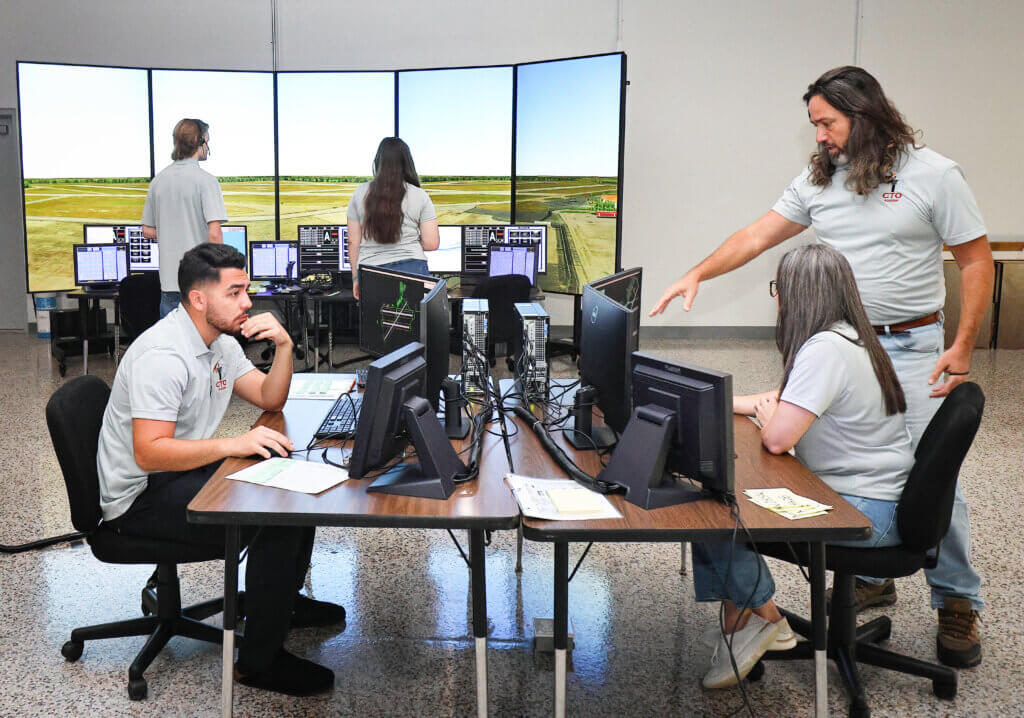Manufacturing Month Highlights Advances in The Industry
When you think of manufacturing in Polk County, you should think beyond citrus and phosphate, two industries that paved the way for the county to become a manufacturing hub.
Patti Gander, director of the Manufacturing and Supply Chain Alliance of Mid Florida (formerly the Polk County Manufacturing Association), said manufacturing is often defined as a “process that converts raw materials into a new product, and the new product has a greater value than its inputs.”
Based on that definition, Publix’s bakery is considered a manufacturer, one of the top ones in the county, along with Stryker, Flanders Precision Air and Florida’s Natural.
Using data from Industry Select, Gander estimates there are about 18,500 people in Polk County employed in manufacturing. During October, which is national Manufacturing Month, it’s time to take a closer look at how manufacturing jobs and the educational opportunities available here contribute to the economic prosperity of the county.
Gander said Polk County has a healthy manufacturing population.
“We have grown to include large employers in transportation and warehousing,” she said. “Our members work to address our common issues in finding and developing skilled workers, exploring new technologies and seeking available grants and legislative support so our businesses remain competitive.”
MANUFACTURING EDUCATION IN POLK
Gander said she thinks Polk County’s educators help manufacturers. In high schools, for instance, Polk County offers technology academies geared specifically toward manufacturing and actively seeks out manufacturers to participate as industry advisers.
Higher education institutions are also focused on manufacturing. The Polk State Corporate College in Bartow offers credit and non-credit programs aligned with the manufacturing industry, and Polk State College has a number of programs with certification credentials that are now industry requirements, she said.
The Corporate College works with industry partners to provide customized training for their employees, said Director Howard Drake. “We are proud that we can play a role in assisting our partners to maintain a competitive advantage.”
It recently received the International Organization of Standardization (ISO) 9001 certification, a continuous improvement process that shows the college is committed to meeting standards to train students for manufacturing jobs, said Howard Drake, director of the Corporate College. It is the most widely recognized quality management system (QMS) certification in the world.
“[It] defines requirements for companies who want to ensure that their products and services consistently meet customer requirements and continually improve their business processes,” Drake said. “It is important to the Corporate College because it demonstrates a commitment to excellence in all we do and provides a higher level of confidence for our employer partners that their investment in training solutions is maximized.”
The college develops training programs for area companies through its Advanced Manufacturing Institute. Mosaic has been a partner since the college opened, and Nucor Steel is a new partner.
“We strive to ensure that Mosaic’s training solutions’ requirements are relevant, cutting edge and forward-thinking,” said Drake, who described two apprenticeship programs — Mechanic Millwright and Electrical-Instrumentation & Automation — that have existed since 2010. He said more are scheduled as the company continues to improve the skills of its workforce.
For Nucor, the college will “deliver foundational training for their new employees scheduled to start up in 2020,” Drake said. “The partnership will include the deployment of a comprehensive plan designed to accelerate value add for the Nucor team.”
Through its College Alliance for Advanced Manufacturing, the Corporate College “assists
employers outside of the Polk County area with training solutions that might not be available in other counties,” Drake said.
The college has agreements with St. Petersburg College, Daytona State College and Palm Beach State College, among others, which allows it to share subject matter experts.
“As a result, our partner schools do not have to hire instructors or develop curriculum. The best news is that each partner can reciprocate, thereby extending the outreach of quality training solutions for industry.”
THE FUTURE
Drake and Gander agree that manufacturing is a robust, growing segment of Polk County’s economy, but it’s also experiencing a lot of change.
“The future will likely bring an increased demand for skilled labor as manufacturing continues its trend toward increased automation and increased use of higher technology manufacturing equipment,” Gander said. “The industry will also be looking to utilize more data and the analytics of that data to drive strategic decisions.”
Florida Polytechnic University plays a role in that, she said.
“Florida Poly has programs that are very related to Industry 4.0,” she said, referring to the term used to define the manufacturing segment of the Fourth Industrial Revolution, focusing on factories that use such things as wireless technology and artificial intelligence.
“[They provide] the student base with learning that will be in very high demand as manufacturing moves toward the Industry 4.0 model,” she said.
The Corporate College also plays a part, but Drake admits there are challenges.
“Our challenge as a training solutions provider is to assess, outline and deliver competency attainment that keeps up with the technological advances,” Drake said. “Industry depends on the Corporate College to be flexible, competent and relevant.”
He said targeting those just entering the workforce is critical.
He suggests students who attend Polk County public school career academies consider manufacturing as a career. They should “take a serious look at the availability of rewarding and high-paying careers in manufacturing,” Drake said. “Generally speaking, today’s advanced manufacturing is no longer dark, dirty and dangerous.”



